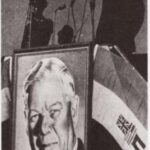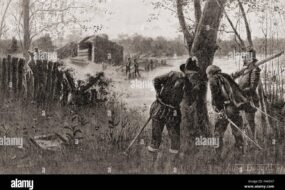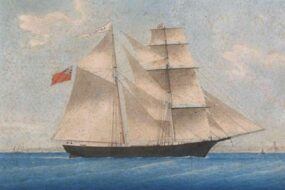The inquiry into trotsky’s assassination was a complex and intriguing one, wiht manny twists and turns. Ramón mercader, the NKVD agent who delivered the fatal blow, was hailed as a hero by the Soviet regime, but his role in the assassination was not without controversy. Mercader had been working undercover, using various aliases and covers to gain access to Trotsky’s inner circle. His Spanish-born background and fluent Spanish made him an ideal candidate for the operation, as he could blend in seamlessly with the Mexican and Spanish expatriate communities.
The aftermath of the assassination saw a notable increase in tensions between the Soviet Union and the Western world. The NKVD’s brazen operation in Mexico had exposed the reach and ruthlessness of Stalin’s regime, and many began to question the true nature of Soviet intentions. In the years that followed, Trotsky’s legacy continued to be felt, with many seeing him as a martyr for the cause of socialism.His writings and ideas remained influential, inspiring generations of activists and intellectuals around the world. Some of the key aspects of Trotsky’s life and legacy include:
Early life and education: Born in Russia in 1879, Trotsky was a prominent figure in the Russian Revolution, serving as a key advisor to Lenin and playing a crucial role in the Bolsheviks’ rise to power. Exile and assassination: After being expelled from the Soviet Union in 1929, trotsky spent years in exile, eventually settling in Mexico, where he was assassinated in 1940.
Theories and writings: Trotsky was a prolific writer and theorist, penning influential works on Marxism, communism, and the nature of the Soviet state.
Despite his tragic end, Trotsky’s story serves as a reminder of the complex and often brutal nature of history, and the enduring impact of individual actions on the world around us. The legacy of Leon Trotsky continues to be felt today, with many regarding him as a champion of socialism and a symbol of resistance against oppression. His influence can be seen in various aspects of modern society, from politics and economics to culture and activism.
The impact of Trotsky’s assassination was not limited to the Soviet Union or Mexico; it had far-reaching implications for international relations and global politics. The Cold War was beginning to take shape, and the assassination of Trotsky served as a stark reminder of the ruthless tactics employed by the Soviet regime. In the years that followed, the world would see a significant increase in tensions between the Soviet Union and the Western world, ultimately leading to the Cold War.
In the decades that followed,Trotsky’s legacy continued to be a subject of debate and fascination. For some, he remains a hero of the revolution, a man whose ideals and vision for a socialist future were corrupted by the harsh realities of Soviet politics. For others, he is a symbol of the factional infighting and ideological rigidity that characterized much of the 20th-century communist movement. Nonetheless of outlook, the story of Leon Trotsky is a testament to the complex, frequently enough brutal nature of political power and the enduring impact of ancient events on our contemporary world.Some notable reactions to Trotsky’s assassination include:
International condemnation: The assassination was widely condemned by governments and intellectuals around the world, who saw it as a brazen act of state-sponsored terrorism.
Soviet denials: The Soviet regime denied any involvement in the assassination, claiming that Trotsky had been killed by a lone gunman or a group of anti-Soviet extremists.
Legacy of controversy: the controversy surrounding Trotsky’s assassination continues to this day,with many questions remaining unanswered about the circumstances of his death and the role of the NKVD.
#InfographicStory #WorldHistory #HistoricalEvents #DidYouKnow #TrueStory #HistoryNerd #GlobalFigures #Trotsky #SovietHistory #Revolution #Assassination #ColdWar #Communism #Stalin #NKVD #Espionage #Mexico #Russia #20thCenturyHistory








